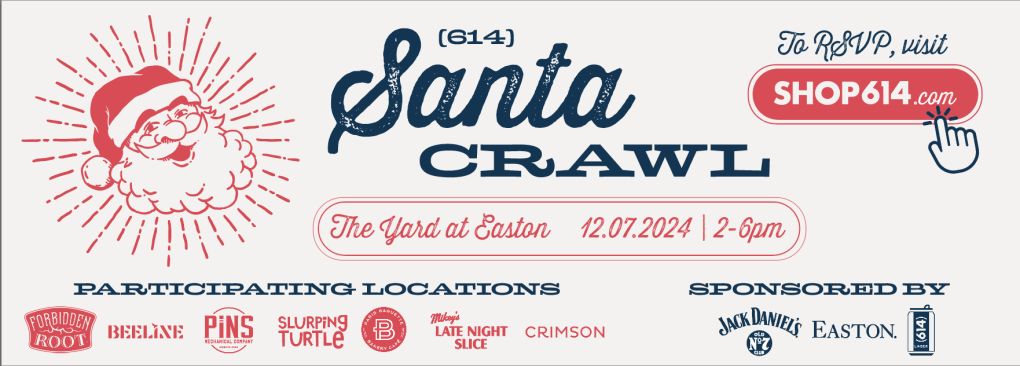City as Folk
People often come in the first time for eggs. They’re in a modest-sized refrigerator in the back. To get there, you have to walk past the bags of chicken feed and the composting bins, turn right at the shelf of seasonal seed packets surrounded by garden tools, go through the doorway situated between the bat houses and beehives, and try to resist turning into the jewelry store selling impossibly cute treasures that occupies the corner space. Got it? Now, the eggs: you can choose from several varieties, all Ohio-raised and hormone free. While you’re deciding, you may also want to consider the raw milk, cheese, or yogurt, and since you’re getting eggs anyway, you might as well get some free-range chicken too, and—wait is that bison? Also have you considered how you’re going to cook those eggs? Because there’s refurbished cast iron for sale just around the corner…
Such is a walk through City Folks Farms Shop, a “homesteading store” selling “a little bit of everything,” in the words of co-owner Brandy James. It’s also the reason new customers often leave with more than they intend to.
James and her husband co-own the store with Nicole Graf and her wife Paisley Nash-Dooley. After the James’ worked at City Folks under the previous owner, with Brandy selling her own brand of herbs and remedies in the shop, the couples took over ownership of City Folks in July. They plan to continue the “community-minded” spirit of the store by hosting regular workshops around the shop’s large wooden table, made from the original owner’s family barn.
City Folks is designed “to support people to do things on their own,” Graf said, following the practices in her and Nash-Dooley’s home. “We try to keep things simple and non-consumeristic, we don’t buy a lot of things, we make and we build.”
“I think people are really trying to get away from big
box stores and trying to do things on their own and be
more self-sufficient. And I think in doing that,
they’re learning one of the easiest places to start
is with food, and growing your own food,”
Drawing on this expertise, the staff can help get almost any project started. “If you say, hey, I’m curious about soap making or I’m curious about making my own cheese, can you help me? [Brandy and Paisley] can actually walk you through the store and help you gather what you need to do that,” Graf said.
James shared some advice on what to do before you shop, particularly if you have a larger-scale project in mind. Do your research first, she says, having learned from experience the challenges that can come with urban chicken farming.
“It can get a little overwhelming if you don’t know what you’re getting into and what the permit process entails. Because what people want to do is go out, they get their chickens, they get their coop, and then they backtrack and start researching and realize that their run isn’t set up in the proper place in their yard or it’s not the right size or they don’t have the proper materials.” If chicken farming is in your future, this fall City Folks is offering a three-part “City Chicken Boot Camp” focused on the ins and outs of the permit process and caring for chickens.
James suggests beekeeping as a less-intensive project. “It’s incredibly popular in the city and people don’t realize that there aren’t many regulations on beekeeping. You can put a hive on pretty much any sized plot in the city,” she said. “If you really want to just help out the bee population and host a hive and make sure they have a safe chemical-free place, then you don’t really need much,” although she cautioned there is more work involved if your aim is to harvest honey.
As they prepared for their official grand opening later that day, they reflected on what drives consumer interest in a store like City Folks.
“I think people are really trying to get away from big box stores and trying to do things on their own and be more self-sufficient. And I think in doing that, they’re learning one of the easiest places to start is with food, and growing your own food,” James said.
So what’s next for urban farming? “I think sheep or goats are gonna have a resurgence here,” James said. “Goat milk has become increasingly popular… To have goat milk year-round, you have to have babies. So I think people are going to realize that, number one, goat milk is pretty awesome, and number two, it’s not that hard to keep goats in the city, and number three, you have to continuously have goats (to have milk), so there’s going to be an excess of them.” While there are some restrictions on owning goats in Columbus, it’s easier than one might assume. “You do have to have a certain land size, but it’s under an acre,” James said.
Interested? City Folks will offer two classes on raising goats in the city this fall.
City Folks Farm Shop is located at 4760 N High St.
For more, visit cityfolksfarmshop.com.
BROUGHT TO YOU BY



